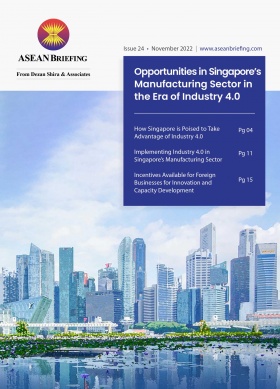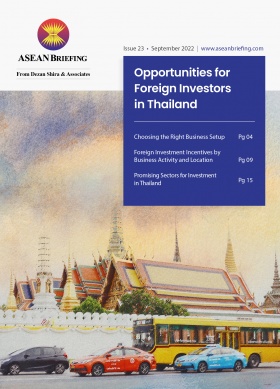Employment Permits in Malaysia
Foreign workers can apply for several types of employment permits in Malaysia. The type of work permit issued by the government depends on the skill of the foreign applicant, as well as the remaining quota for that sector.
Foreign workers who wish to be employed by a company within Malaysia will have to have their application reviewed by the relevant government agencies, such as the Ministry of Manpower. The employee’s sponsoring company must also work with the government to ensure that the worker is approved for entry.
The Malaysian government issues these different types of work permits:
- Employment pass;
- Temporary employment pass;
- Professional visit pass;
- Digital nomad visa; and
- PLS@XPATS pass.
Employment pass
This work permit enables foreign workers to take up employment under a contract of service with an organization in Malaysia. This pass is issued to employees with specific skills, usually for technical or managerial jobs.
The employment pass is classified into three categories:
Category I
Applicants must receive a monthly base salary of 10,000 ringgit (US$2,410) or more and have an employment contract of up to 60 months.
Applicants may bring eligible dependent(s) and/or foreign domestic helper(s), subject to approval and the employment pass may be renewed.
Category II
Applicants must receive a monthly base salary of above 5,000 ringgit (US$1,200) and under 10,000 ringgit (US$2,410) has an employment contract with a maximum validity period of 23 months. The employment pass may be renewed.
Applicants can bring eligible dependent(s) and/or foreign domestic helper(s), subject to approval.
Category III
Employment pass category III is available to foreign nationals working on contracts of 12 months or less and with monthly salaries ranging from 3,000 ringgit (US$723) and under 5,000 ringgit (US$1,200). The employment pass may be renewed up to two times. Applicants are not allowed to bring dependent(s) and/or foreign domestic helper(s).
Requirements to apply for an employment pass
It is the responsibility of the employer to apply for an employment pass on behalf of the foreign employee.
The employer must first apply for an ‘expatriate post’ at one of the following government agencies:
- Multimedia Development Corporation – for jobs in the technology sector;
- Malaysia Industrial Development Authority – for the manufacturing and services sectors;
- Malaysian Biotechnology Corporation – for jobs in the biotechnology sector;
- Central Bank of Malaysia – for sectors of finance, banking, and insurance;
- Securities Commission – for the securities and futures market sectors; and
- Expatriate Committee – for sectors that are not under the above.
Once the expatriate post has been approved, the employer can then submit the employment pass application to the Immigration Department of Malaysia.
- The employer will need to submit the following documents to the Immigration Department;
- The Employment Pass application form;
- Copy of passport;
- Letter of approval from the relevant authority body;
- Employment contract;
- CV and education certificates; and
- The employer’s company profile.
Temporary employment pass
Malaysian companies requiring the immediate services of semi-skilled foreign workers in specific sectors can obtain a temporary employment pass, also known as a visitor’s pass. The pass is valid for a period of 12 months and employers can apply for an extension on a yearly basis for up to 10 years.
There are two types of temporary employment passes in Malaysia:
- For foreign workers in the construction, plantation, agriculture, manufacturing, and services; and
- Foreign domestic helpers.
Further, this work permit is open only to citizens from the approved countries:
- Bangladesh – Only allowed to work in the plantation sector through government-to-government agreements;
- Cambodia;
- India – Citizens are not allowed to work in the manufacturing sector;
- Indonesia – Male citizens are only allowed to work in the manufacturing sector whereas females can work in all sectors;
- Kazakhstan;
- Laos;
- Myanmar;
- Nepal;
- Pakistan;
- Philippines – female citizens are prohibited from working in any sector;
- Sri Lanka;
- Thailand;
- Turkmenistan;
- Uzbekistan; and
- Vietnam
Requirements to apply for a temporary employment pass
As with Employment Passes, it is the duty of the employer to apply for the temporary employment pass on behalf of the foreign applicant.
The employer will also need to apply for a visa approval letter from the Immigration Department of Malaysia.
The employer will need to provide the following documents:
- VDR application form;
- An approval letter from the Ministry of Home Affairs regarding the quota approval;
- 12 and IM.38 visa application forms;
- Receipt of payment for levy;
- Security bond – insurance guarantees/bank guarantee;
- Copy of the foreign applicant’s passport;
- Passport-sized photo of applicant;
- Medical certificate issued from a medical center in the applicant’s country of origin (valid for three months);
- Foreign Worker Compensation Scheme (insurance); and
- An insurance policy of the Health Insurance Protection Scheme Foreign Workers (SPIKPA) (health insurance).
After the visa approval letter is approved, the employee can apply for a visa with reference (VDR) from the Malaysian embassy (certain nationals do not need an entry visa).
In addition to the VDR, the employee will need to obtain an Immigration Security Clearance (ISC) from an ISC center in their source country.
The Temporary Employment Pass will only be issued after the employee has passed the FOMEMA (Foreign Workers Medical Examination Monitoring Agency) medical examination within 30 days of arrival. FOMEMA is the company appointed by the Malaysian government to undertake these examinations.
Professional visit pass
The professional visit pass is granted to foreign workers with the necessary qualifications or skills to work in Malaysia on a temporary basis for up to 12 months.
They can only provide their services to a Malaysian company on behalf of an overseas company and are not allowed to apply for a dependent’s pass.
Requirements to apply for a professional visit pass
The sponsor company in Malaysia must make the application to the Immigration Department by submitting the following documents:
- Copy of passport of the foreign employee;
- 12 and IM.38 visa application forms;
- Letter of offer from Malaysian company;
- Sponsor’s company profile;
- Academic certificates (for international students);
- Letter of approval from the Department of Religion and the Islamic Religious Department (for religious missionaries); and
- Bank guarantee (if you are a Chinese citizen).
Once the professional visit pass has been approved, the employee can then apply for the VDR (certain nationals do not need an entry visa) to enter the country.
After arrival in Malaysia, the employee must visit the Immigration Department of Malaysia to receive the professional visit pass sticker on their passport.
Who is eligible?
- People under the following categories are eligible to apply for a Professional Visit Pass:
- Islamic missionaries;
- Foreign artists – filming and performing;
- Government officials;
- Volunteers;
- International students – under industrial training or mobility program; and
- Other religious workers – priests, granthi, gurukul, guru dharma (these must be at least 40 years of age).
Business visas
Malaysia does not issue business visas, so those traveling for business purposes can do so through a tourist visa.
To apply, the applicant must show proof of having sufficient funds while in Malaysia and must possess a valid return ticket.
Digital nomad visa
Malaysia rolled out ASEAN’s first digital nomad visa under the De Rantau program, which will be open to applicants from October 1, 2022. The program welcomes digital marketers, IT professionals, and content creators for up to 12 months’ stay.
Obtaining a digital nomad visa in Malaysia
De Rantau is open to foreign and local digital professionals. For foreigners, they will receive a Professional Visit Pass, which will allow them to stay in Malaysia for between three and 12 months, after which it can be renewed for an additional 12 months.
Types of digital nomads
De Rantau aims to attract two types of digital nomads:
- Digital freelancer, independent contractor; and
- Remoter workers (full and part-time).
As such, the profession of the digital nomad must be IT-related, such as software development, cloud, UX, UI, cybersecurity, AI, digital marketing, and digital creative content, among others.
Proof of work
Digital freelancers or independent contractors must show an active project contract with a duration of more than three months. These can be in the form of multiple contracts, and the clientele can be foreign or Malaysian companies.
Remote workers, need to show an active employment contract, where the contracted period is longer than three months. The employer can be foreign or Malaysian-based.
Annual income
The annual income of a foreign digital nomad must be more than US$24,000, while it should be more than 36,000 ringgit (US$7,863) for local digital nomads.
Application fee
The application process is online and there is a fee of 1,000 ringgit (US$218) for the main applicant and an additional 500 ringgit (US$109) for each dependent they might bring.
De Rantau will also certify accommodation providers that are equipped to accommodate digital nomads, such as providing fiber internet. These ‘digital nomad hubs’, will also include co-working spaces.
New social visit pass
Malaysia launched a new social visit pass named PLS@XPATS in October 2022, which allows social visit pass holders to work in the country for up to 30 days. The nature of the work must be considered critical or urgent and is only allowed in selected sectors, such as education, construction, and manufacturing, among others.
What are the permitted sectors that PLS@XPATS holders can work under?
Applicants of the PLS@XPATS pass can only work under these selected sectors:
- Government sector;
- Government link companies (companies in which the Malaysian government has a controlling stake); or
- The private sector but under the following categories:
- Manufacturing;
- Security and defense;
- Oil, gas, and energy;
- Healthcare;
- Finance and banking;
- Construction;
- Information, technology, and infrastructure;
- Tourism;
- Wholesale and retail;
- Electrical and electronics;
- Business services;
- Aviation;
- Education; and
- Business services.
Critical work criteria
An essential condition for obtaining the PLS@XPATS pass is the definition of the work that is to be conducted. Foreign companies must prove that the foreign nationals they hire under this pass are conducting critical work, which is defined as emergency work, repair work, maintenance, installations, or recovery/reinstallation.
This must be accompanied by a job description and a work schedule.
Processing time
The Immigration Department will process new applications within three business days of submission. This is much faster than the process to obtain a Professional Visit Pass, which can take up to 75-135 business days.
The applicant will receive an approval letter that they must present to Malaysian immigration upon arrival, at the point of entry. Foreigners who require a visit before entering Malaysia must obtain a Visa Without Reference (VWR) at the Malaysian Embassy/High Commission/Consulate.
About Us
ASEAN Briefing is produced by Dezan Shira & Associates. The firm assists foreign investors throughout Asia and maintains offices throughout ASEAN, including in Singapore, Hanoi, Ho Chi Minh City, and Da Nang in Vietnam, in addition to Jakarta, in Indonesia. We also have partner firms in Malaysia, the Philippines, and Thailand as well as our practices in China and India. Please contact us at asean@dezshira.com or visit our website at www.dezshira.com.
- Previous Article Indonesia Issues Incentives for New Capital City Project
- Next Article Philippines Ratifies RCEP Agreement: Opportunities for Businesses






